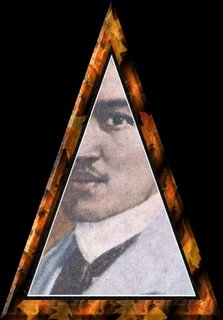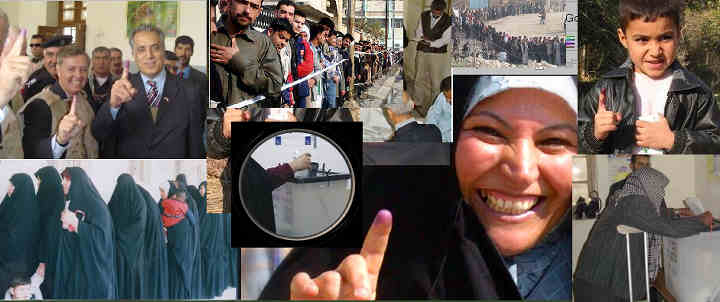 hese are all the posts of Philippine Commentary since this old blog was resurrected in mid-October, 2005. (It's surprising how much of its previous incarnation as www.deanjorgebocobo.blogspot.com survives in the global caches, sometimes embarrassingly, sometimes satisfyingly). Even as we look forward to the year that is yet to be in 2006, this seems to be a good time for a retrospective listing for the convenience of the Readers and Travelers that come to this Archipelago of Philippine Commentaries. There is plenty new in store this coming year, but suffer the recent past of my humble efforts as preparation...
hese are all the posts of Philippine Commentary since this old blog was resurrected in mid-October, 2005. (It's surprising how much of its previous incarnation as www.deanjorgebocobo.blogspot.com survives in the global caches, sometimes embarrassingly, sometimes satisfyingly). Even as we look forward to the year that is yet to be in 2006, this seems to be a good time for a retrospective listing for the convenience of the Readers and Travelers that come to this Archipelago of Philippine Commentaries. There is plenty new in store this coming year, but suffer the recent past of my humble efforts as preparation...OCTOBER, 2005:
Democracy and the War on Terror
Where Will America Stand As The Iron Fist Falls?
Upping the Ante--Abolish the Senate
The Ominous Silence of Washington
Debating the Anti-Terrorism Bill
Beauty Bares the Nobility of the Nanny
A New Weblog Is Created Every Second
One Bishop Blogging, Four Bishops Blogging
The Good Manoling Morato
The Garcillano Hypothesis
Tribes At War
American Blogger in Mindanao on Civil Liberties
Visual Maps of the Filipino Blogosphere
Civil Rights Pioneer Rosa Parks Dies at 92
19 Clicks is the Diameter of the Blogosphere
The Power Laws of Blogosphere Popularity
America's Interests and the Fate of Gloria Macapagal Arroyo
Game Theory and Gloriagate
Gloria Macapagal Arroyo and the Veto-holders
ABSCBN Anchor Tags Defensor Man in Terror Suspect's Bail Release
NOVEMBER, 2005:
Halloween in the Demagagosphere
A Tribute to a True Leader
The Julius Babao Affair and the Missing Terrorist
Rizalist and I
Can the Left Please Explain the Parisian Intifida?
Six U.S. Marines Held For Raping a Filipina in Subic
Will Bloggers Get Clobbered in the Philippines
Is Terrorism a Tactic?
Philippine Government Captured the Wrong One Armed Terrorist?
The Fly in the Ointment
Paris as a Memetic Outbreak
Personal Abhorrence
Before We Won the War and Lost the Peace
ABSCBN Empire Strikes a Blow for Press Freedom?
The Opposition in Full Retreat
Visiting Forces Aggrievement
Scrapping the VFA Will Only Free the Accused Rapists
Bunye & Goebbels -- Masters of the Big Lie Technique
How Secure Are the Southeast Asian Games?
Attack of the Rainbow Warrior
No Blog Is An Island
Land Ho! Oops, the Tubbataha Reefs
Open Source Media Launches
Was This A Gutenberg Moment?
A Future Poem
A Little Yellow Journalism by Leftist Hate-mongers
Orphans of the Anglosphere
Has the Gene Pool Run Out?
Garci's Back -- GMA's Safe For Now?
Metaphor of the Single Jetliner
How Could I Forget?
The Paradox of People Power
To Parry the Coming Offensive
The Wire Tapping. The Wire Tapping!
The Stone of Scone and the Bells of Balangiga
Was the Adam and Eve of All Tapes Digital?
Overhearing the Palace Thinking
DECEMBER, 2005:
And So The Retreat Begins?
Rope-a-Dope Trap: Garci as Poisoned Pawn?
Gold Silver Bronze Black Eye
Fingerprinting the Human Voice
Sunday In Iraq -- Cradle of Civilization
China's New East Asia Co-Prosperity Sphere
Judas Goat On Top Of Mount Pinatubo
The Day After Pearl Harbor
Supreme Court Will Now Rule in Garci's Favor
Stunning Break in Gloriagate Controversy
Russia, China Big in ASEAN. Where's America?
Fourteen Soldiers Are Hostages of ISAFP
Science Sunday -- the Nuclear Nobel
Long Live the Anti Wire Tapping Law!
The Right to Privacy and the Public's Right to Know
Only the Opposition Can Save GMA
Dilemma of the Poisoned Fruits
Our Love Goes to Democratic Iraq!
Big Wiretapping Issue in America Too
Bush Addresses the Wiretapping Issue
What WAS the Star of Bethlehem
Democratic Iraq -- First and Only in the Arab World
Davide Retires -- Good Riddance
Iraq is a Project Like Japan or Germany
Freedom and Garci's Second Petition
FVR Calls on GMA to Cut and Cut Cleanly
Chief Justice Panaganiban In His Own Words
Bells of the Archipelago Called Earth
Future American Leaders Are In Iraq
Democratic Iraq Is A Baby In Bloody Swaddling Clothes
National Security is the Highest National Interest
Nobody Died Today...It's All A Vile Rumour
Where Will America Stand As The Iron Fist Falls?
Upping the Ante--Abolish the Senate
The Ominous Silence of Washington
Debating the Anti-Terrorism Bill
Beauty Bares the Nobility of the Nanny
A New Weblog Is Created Every Second
One Bishop Blogging, Four Bishops Blogging
The Good Manoling Morato
The Garcillano Hypothesis
Tribes At War
American Blogger in Mindanao on Civil Liberties
Visual Maps of the Filipino Blogosphere
Civil Rights Pioneer Rosa Parks Dies at 92
19 Clicks is the Diameter of the Blogosphere
The Power Laws of Blogosphere Popularity
America's Interests and the Fate of Gloria Macapagal Arroyo
Game Theory and Gloriagate
Gloria Macapagal Arroyo and the Veto-holders
ABSCBN Anchor Tags Defensor Man in Terror Suspect's Bail Release
NOVEMBER, 2005:
Halloween in the Demagagosphere
A Tribute to a True Leader
The Julius Babao Affair and the Missing Terrorist
Rizalist and I
Can the Left Please Explain the Parisian Intifida?
Six U.S. Marines Held For Raping a Filipina in Subic
Will Bloggers Get Clobbered in the Philippines
Is Terrorism a Tactic?
Philippine Government Captured the Wrong One Armed Terrorist?
The Fly in the Ointment
Paris as a Memetic Outbreak
Personal Abhorrence
Before We Won the War and Lost the Peace
ABSCBN Empire Strikes a Blow for Press Freedom?
The Opposition in Full Retreat
Visiting Forces Aggrievement
Scrapping the VFA Will Only Free the Accused Rapists
Bunye & Goebbels -- Masters of the Big Lie Technique
How Secure Are the Southeast Asian Games?
Attack of the Rainbow Warrior
No Blog Is An Island
Land Ho! Oops, the Tubbataha Reefs
Open Source Media Launches
Was This A Gutenberg Moment?
A Future Poem
A Little Yellow Journalism by Leftist Hate-mongers
Orphans of the Anglosphere
Has the Gene Pool Run Out?
Garci's Back -- GMA's Safe For Now?
Metaphor of the Single Jetliner
How Could I Forget?
The Paradox of People Power
To Parry the Coming Offensive
The Wire Tapping. The Wire Tapping!
The Stone of Scone and the Bells of Balangiga
Was the Adam and Eve of All Tapes Digital?
Overhearing the Palace Thinking
DECEMBER, 2005:
And So The Retreat Begins?
Rope-a-Dope Trap: Garci as Poisoned Pawn?
Gold Silver Bronze Black Eye
Fingerprinting the Human Voice
Sunday In Iraq -- Cradle of Civilization
China's New East Asia Co-Prosperity Sphere
Judas Goat On Top Of Mount Pinatubo
The Day After Pearl Harbor
Supreme Court Will Now Rule in Garci's Favor
Stunning Break in Gloriagate Controversy
Russia, China Big in ASEAN. Where's America?
Fourteen Soldiers Are Hostages of ISAFP
Science Sunday -- the Nuclear Nobel
Long Live the Anti Wire Tapping Law!
The Right to Privacy and the Public's Right to Know
Only the Opposition Can Save GMA
Dilemma of the Poisoned Fruits
Our Love Goes to Democratic Iraq!
Big Wiretapping Issue in America Too
Bush Addresses the Wiretapping Issue
What WAS the Star of Bethlehem
Democratic Iraq -- First and Only in the Arab World
Davide Retires -- Good Riddance
Iraq is a Project Like Japan or Germany
Freedom and Garci's Second Petition
FVR Calls on GMA to Cut and Cut Cleanly
Chief Justice Panaganiban In His Own Words
Bells of the Archipelago Called Earth
Future American Leaders Are In Iraq
Democratic Iraq Is A Baby In Bloody Swaddling Clothes
National Security is the Highest National Interest
Nobody Died Today...It's All A Vile Rumour
[NOTICE] Philippine Commentary posts are long but Printer Friendly. Use your Browsers File & Print commands to make nice print-outs of any post. And if you click on the main headline of any post, you will open up the unique web page of that post including all Reader Comments. If you have a blogger account you can join the discussion. All Philippine Commentaries are hereby donated to the PUBLIC DOMAIN forever by its author(s). They may be used free of charge for any lawful and moral purpose that promotes Justice and Liberty for all. All other uses are expressly forbidden.--DEAN JORGE BOCOBO





